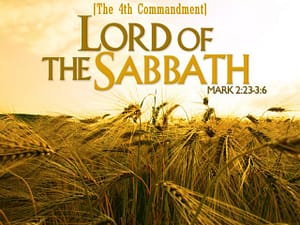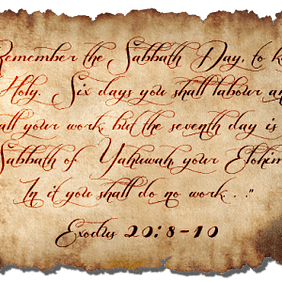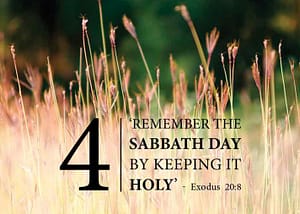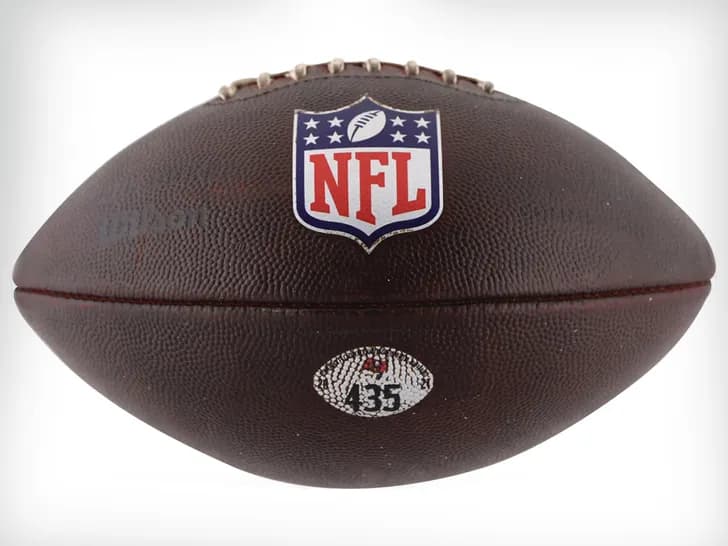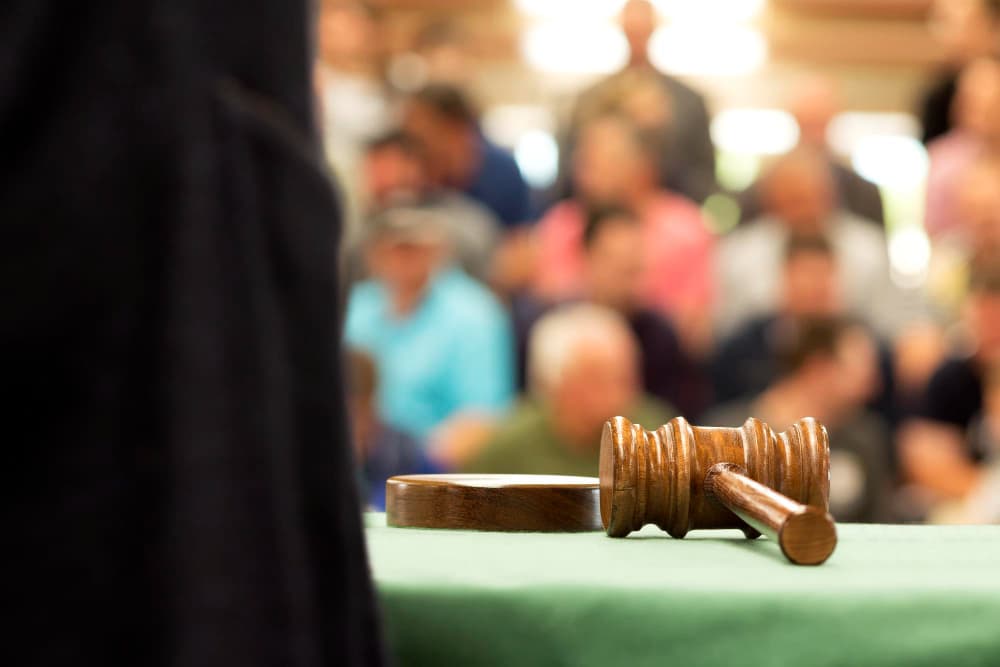The Highest Bidder vs. the Luckiest Bidder! And, What about the Seller?
I think it’s fair to say that all participants at an auction – the seller, the bidders, and the auctioneer – have a reasonable expectation that property exposed for sale ought to be sold to the bidder who tenders the highest bid. There are times, however, when an auctioneer misses, or overlooks, an advancing bid and declares a lot sold not to the highest bidder, but to – for lack of a better term – the luckiest bidder. So, how do you handle that unfortunate reality?
Auctioneers have been told that you should say “sold” and mean it. Auctioneers have been told that “sold means sold.” Auctioneers have been told that you should never, never, never reopen the bidding after the fall of the hammer. Auctioneers have been told that you need to think about how reopening a lot today might affect attendance at your next auction. Auctioneers have even been told that you need to conduct your business more like a traditional retailer rather than an auctioneer when it comes to the possibility of unselling things. The question that auctioneers might ask in response is – How much of this advice is based on the law or on actual existing industry standards, and how much is based on personal preference divorced from the law and actual existing industry standards?
To start, I don’t believe that I have never met an auctioneer who said “sold” without meaning it. If an auctioneer misses a bid, points to a bidder that the auctioneer mistakenly believes to be the high bidder, and uses the magic word “sold,” I’d be willing to bet that the auctioneer means it. In that case, however, was it the intent of the auctioneer to sell to the luckiest bidder, and not to the highest bidder? Was it the intent of any of the bidders (including the bidder identified by the auctioneer and the bidder missed by the auctioneer) that the property be sold to the luckiest bidder, and not to the highest bidder? Was it the intent of the seller that the property be sold to the luckiest bidder, and not to the highest bidder? How does selling to the luckiest bidder comport with the reasonable expectation of the seller, the bidders, and the auctioneer that the property will be sold to the highest bidder? And, what does the law say about that? Similarly, if there is a glitch during an online auction that results in the early termination of a lot, or in a timely tendered bid going unrecognized, should the luckiest bidder be preferred over the highest bidder? How does a preference for the luckiest bidder over the highest bidder affect the seller? What are the implications with respect to the agency relationship between the auctioneer and the seller, and, in particular, the auctioneer’s fiduciary obligations to the seller, if the auctioneer favors – as a matter of policy – the luckiest bidder over the highest bidder?
Article 2 of the Uniform Commercial Code recognizes the expectation of the seller, the bidders, and the auctioneer that property sold at auction will be sold to the highest bidder, not the lucky bidder who the auctioneer erroneously believes – at least for a moment in time – was the highest bidder. Under the UCC, an auctioneer has the discretion to reopen the bidding after the fall of the hammer in order to recognize a bid that was timely tendered prior to the fall of the hammer, but that went unnoticed or unrecognized by the auctioneer. I’m not making this up – that’s what the law says! Specifically, Section 2-328(2) expressly provides that
"A sale by auction is complete when the auctioneer so announces by the fall of the hammer or in other customary manner. Where a bid is made while the hammer is falling in acceptance of a prior bid the auctioneer may in his discretion reopen the bidding or declare the goods sold under the bid on which the hammer was falling."
As a matter of contract law, Section 2-328(2) of the UCC establishes a condition (actually a condition subsequent) to the existence and enforceability of the contract for sale that is formed with the fall of the hammer. Simply put, the UCC provides the auctioneer with the ability – through the exercise of discretion – to avoid a contract with the luckiest bidder when all of the parties expected that the highest bidder would be the buyer. This rule has been recognized in various cases throughout the United States, including, Callimanopulos v. Christie’s Inc., 621 F. Supp. 2d 127 (S.D.N.Y. 2009) – where reopening the bidding resulted in an increase in the hammer price by $200,000. Essentially, the UCC recognizes the ability of an auctioneer to undo a sale and to reverse the transfer of title (which occurs with the fall of the hammer unless provided otherwise in the auctioneer’s bidder terms and conditions). Why does the law allow that, and why would you do that? Well, let’s go back to the initial proposition that all participants – the seller, the bidders, and the auctioneer – have a reasonable expectation that the property will be sold to the bidder who tenders the highest bid. In this regard, the court in Kline v. Fineberg, 481 So.2d 108, 109 (Fla. App. 3 Dist., 1985), observed that “[t]he auctioneer possesses a great deal of discretion with respect to the conduct of an auction and the acceptance of bids. . . . [and] this discretion includes the right either to close bidding or reopen bidding based on whether the auctioneer believes a bid was timely raised.” In Kline, the court specifically noted that its decision – permitting the reopening of the bidding to recognize a timely tendered missed bid – was consistent with the “main purpose of auction sales” which is to obtain the best financial result for the seller. While, by its terms, the UCC applies only to the sale of personal property (not real property), the courts have borrowed from the UCC and applied its rules to the sale of real property. See Hoffman v. Horton, 212 Va. 565, 186 S.E.2d 79 (Va. 1972).
To be clear, the law doesn’t say that an auctioneer must reopen the bidding to recognize a timely tendered missed bid – the law says that an auctioneer has the discretion to reopen the bidding. Likewise, an auctioneer has the discretion not to reopen the bidding. This raises several questions: Under what circumstances might an auctioneer exercise the discretion to reopen the bidding? Under what circumstances might an auctioneer exercise the discretion not to reopen the bidding? Under what circumstances might an auctioneer give up the discretion to reopen the bidding (or not) prior to the auction (i.e., “I never reopen the bidding!”)?
If an auctioneer is selling $5.00 box lots, there may be a practical rationale supporting the determination not to reopen the bidding to capture another $2.50, or less. Also, it’s not difficult to imagine that an auctioneer who sells, primarily, $5.00 box lots might state – as a policy – that the bidding will never be reopened after the fall of the hammer. But what about the sale of higher-value assets? The price swing in Callimanopulos was $200,000. The price swing in Hoffman v. Horton was $17,000. What about a $25,000 price swing on a piece of farm equipment? Is an auctioneer serving the best interests of the seller by waiving the discretion to reopen the bidding, in advance, without considering the specific facts and circumstances on a case-by-case basis?
As a practical matter, if an auctioneer adopts a policy that bidding will never be reopened – regardless of what the law says and regardless of what actual existing industry standards are – that auctioneer should probably have a serious discussion with the seller up-front and explain in clear and unambiguous terms that the auctioneer will never reopen the bidding to recognize a timely tendered missed bid even if it would benefit the seller. It is one thing to waive your own rights, but if you are willing to leave the seller’s money on the table as a matter of policy, it is a good idea to inform the seller of the policy and obtain the seller’s consent. Otherwise, you run the risk of getting sideways with your seller. Considering that the law affords an auctioneer with the discretion to reopen the bidding, or not, by including appropriate language in both the seller’s contract and the bidder terms and conditions an auctioneer can preserve the discretion without having his or her hand forced one way or the other. Appropriate language may also protect the auctioneer in the exercise of discretion. Here is a sample provision you may want to discuss with your lawyer:
Auctioneer will regulate all matters relating to the conduct of the Auction and Auctioneer’s decisions will be final and binding. Auctioneer will have control over bidding, and Auctioneer will resolve any and all disputes. In Auctioneer’s sole and absolute discretion, Auctioneer may (but will not be required to) reopen the bidding if (i) a bid is made while the hammer is falling in acceptance of a prior bid or while bidding is otherwise being terminated, or (ii) after the fall of the hammer or other termination of the bidding Auctioneer is made aware of a bid that was unnoticed prior to the fall of the hammer or other termination of the bidding, and it is demonstrated to Auctioneer’s satisfaction that such bid was, in fact, timely made, or (iii) after the fall of the hammer or other termination of the bidding Auctioneer is made aware that Auctioneer and a bid assistant or ringman, or multiple bid assistants or ringmen, have acknowledged bids in the same amount bid from different Bidders, or (iv) an online bid, or other bid by a remote Bidder, tendered or attempted to be tendered prior to the fall of the hammer goes unrecognized, or (v) some other bid dispute arises. Any contract formed with the fall of the hammer will be subject to the conditions set forth in this Paragraph. If bidding is reopened pursuant to this Paragraph, the bid recognized by Auctioneer prior to the reopening of the bidding will be held, and may not be retracted, and, if no further bids are received, such bid will be the winning bid. Auctioneer will not suffer any liability based on Auctioneer’s exercise of discretion in determining whether or not to reopen the bidding.
I am not encouraging auctioneers to adopt one policy over another. I am, however, encouraging auctioneers to have a fully informed seller and fully informed bidders who understand the auctioneer’s policy. I am also encouraging auctioneers to understand the law and actual industry standards, rather than the personal preferences of someone selling $5.00 box lots. I would also suggest that an auctioneer’s ethical obligations and fiduciary duties are implicated to the extent an auctioneer’s decision on whether to reopen the bidding today is influenced by what the auctioneer might earn at a subsequent auction, rather than what might be best for today’s seller.
Finally, I typed this article on my laptop. When I bought the laptop, I actually read the terms and conditions, which included the following provisions:
Order Acceptance/Confirmation. Your receipt of an electronic or other form of order confirmation does not signify our acceptance of your order, nor does it constitute confirmation of our offer to sell. To the fullest extent permitted by law, [the Company] reserves the right at any time after receipt of order to accept or decline an order for any reason. [The Company] begins processing accepted orders immediately and is therefore unable to accept order cancellation requests once you have received an order confirmation.
Order Limitations/Limited Quantities. [The Company] reserves the right to reject any order placed, and/or to limit or cancel quantities on any order purchased per person, per household or per order, without giving any reason. These restrictions may include orders placed by the same [Company] Web site account, the same credit card, and orders that use the same billing and/or shipping address. If [the Company] makes a change to an order or rejects an order, [the Company] will attempt to notify you by contacting the e-mail address and/or billing address provided when the order is placed. Products and support acquired by you under these Terms of Sale are solely for your personal use and not for immediate resale or sub-licensing.
As you can see, the Company that sold my computer reserves the right to unsell a computer even after it is ordered and paid for. The rationale, of course, is that there may be certain eventualities or risks that make fulfilling the order impracticable or impossible, and the Company is protecting against those risks. Of course, the Company didn’t sell me a computer and not mean it. Rather, the Company identified a risk and used clear contractual language to allocated that risk and to protect itself. There is nothing inappropriate, arbitrary, or capricious about that. And, the Company is not alone – many online retailers use similar terms and conditions, Google® it!
So, I’ll leave you with one final question – If favoring the luckiest bidder over the highest bidder to the detriment of the seller is not required as a matter of law, is not an identifiable industry standard, is not consistent with the terms and conditions used by non-auctioneer retailers, and might call into question the satisfaction of your fiduciary obligations to the seller, is there a good reason to leave the seller’s money on the table without consideration, and without the exercise of discretion, on a case-by-case basis?
THIS ARTICLE IS FOR INFORMATION AND DISCUSSION PURPOSES ONLY, AND IS NOT INTENDED AS, AND CANNOT BE RELIED ON AS, LEGAL ADVICE. NO ATTORNEY-CLIENT RELATIONSHIP IS INTENDED OR ESTABLISHED. SPECIFIC QUESTIONS SHOULD BE REFERRED TO AN ATTORNEY OF YOUR OWN CHOOSING.
